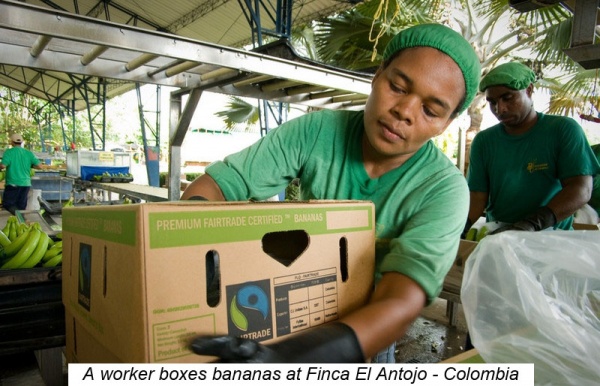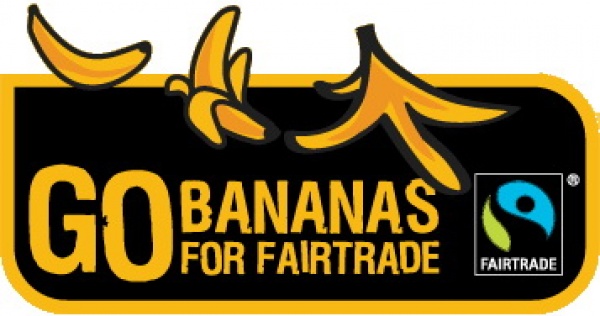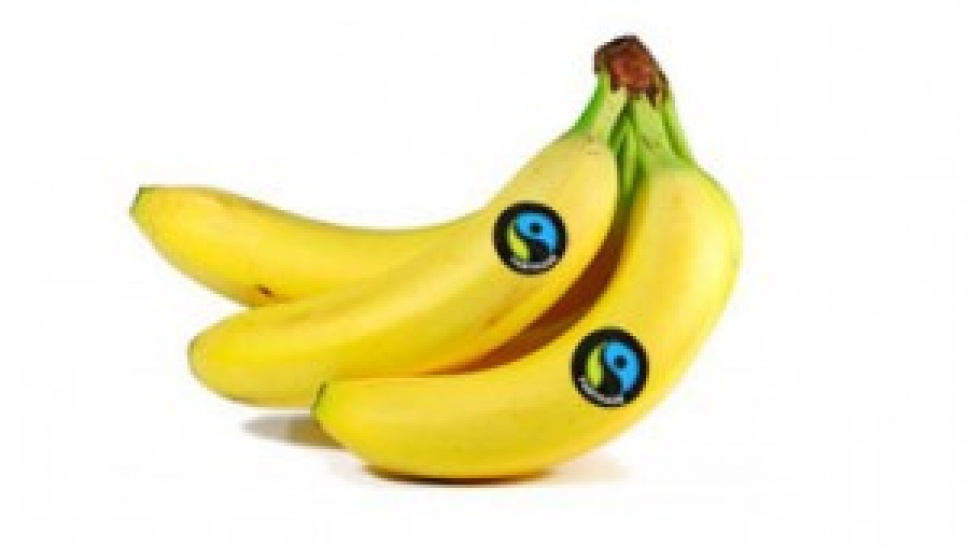One of the biggest challenges affecting the price of bananas is the ‘race to the bottom’ between retailers to offer the lowest possible price to customers. These price wars reduce the value of bananas in the eyes of consumers and put pressure on the entire supply chain to keep banana prices low.
The resulting crush for banana producers – combined with increasing costs of production and fluctuating supply and demand – means the Fairtrade Minimum Price is vital. And makes Fairtrade International’s task of setting a fair minimum price all the more challenging.
It’s an ongoing challenge to determine a minimum price that could cover average sustainable costs for banana producers, while maintaining a reasonable price difference between Fairtrade and non-Fairtrade bananas.
A key component to any price review is consulting and collecting feedback from stakeholders. For the banana price review, the Standards Unit contacted 162 certified organizations and companies (110 producers and 52 traders) and received responses from over 70 percent. The questionnaires were tailored to the respondents, which encouraged thorough responses. In addition, feedback was collected in seven workshops in four countries, representing nine out of every ten Fairtrade certified banana producer organizations.
 Paredes also created a stakeholder group to advise the process from start to finish. This group – known as the banana pricing team – was made up of key members of the Fairtrade banana sector. Marike de Peña represented producers from Latin America (which supplies the majority of Fairtrade bananas) as president of the Latin American and Caribbean Network of Small Fair Trade Producers (CLAC) and director of the Dominican banana cooperative Banelino. Surmaya Talyarkhan represented the Fairtrade Foundation from the UK, where four out of five Fairtrade bananas are sold by retailers. Rounding out the team was Carla Veldhuyzen from the Fairtrade producer services and relations team in Colombia (which accounts for almost two-thirds of total sales of non-organic Fairtrade bananas), and Silvia Campos and Martin Blaser of Fairtrade International’s global product management team for bananas.
Paredes also created a stakeholder group to advise the process from start to finish. This group – known as the banana pricing team – was made up of key members of the Fairtrade banana sector. Marike de Peña represented producers from Latin America (which supplies the majority of Fairtrade bananas) as president of the Latin American and Caribbean Network of Small Fair Trade Producers (CLAC) and director of the Dominican banana cooperative Banelino. Surmaya Talyarkhan represented the Fairtrade Foundation from the UK, where four out of five Fairtrade bananas are sold by retailers. Rounding out the team was Carla Veldhuyzen from the Fairtrade producer services and relations team in Colombia (which accounts for almost two-thirds of total sales of non-organic Fairtrade bananas), and Silvia Campos and Martin Blaser of Fairtrade International’s global product management team for bananas.
The overwhelming response from participants was that the close collaboration fairly addressed the pricing issues facing the Fairtrade banana sector and led to minimum price recommendations that addressed producer needs while considering market concerns.
 “From the outset, the process was transparent and the dialogue constructive,” said CLAC President Marike de Pena in a recent letter to Fairtrade International. “The process always considered the needs of the producer, a fair balance between the countries and analyzed the possible risks for Fairtrade sales in the market.”
“From the outset, the process was transparent and the dialogue constructive,” said CLAC President Marike de Pena in a recent letter to Fairtrade International. “The process always considered the needs of the producer, a fair balance between the countries and analyzed the possible risks for Fairtrade sales in the market.”
Each banana-producing country has unique challenges relating to rising costs of production, currency fluctuation, supermarket price wars, and even competition with other banana-producing regions. The revised minimum prices, which incorporated a review of currency exchange rates and consumer price indices, represent respondents’ feedback and Fairtrade’s best efforts to weigh these considerations on a case by case basis.
The result of this banana price review has left the pricing team eager to continue their collaboration for next year’s price review, which will incorporate a full analysis of the costs of sustainable production.
The revised Fairtrade Minimum Price for bananas, which goes into effect on January 1, 2014, can be found here.
For interesting facts and figures on Fairtrade bananas, take a look at presentation on SlideShare.




Share the News